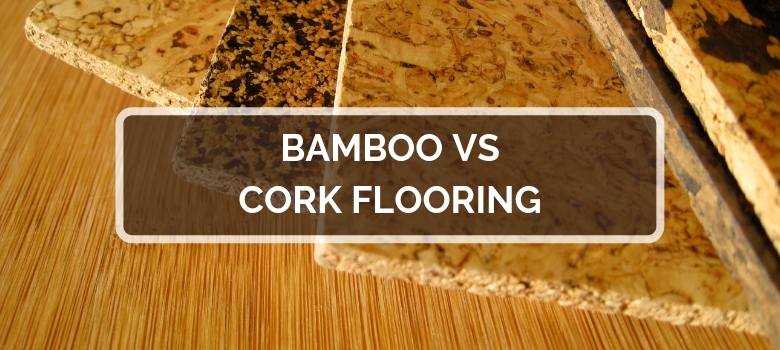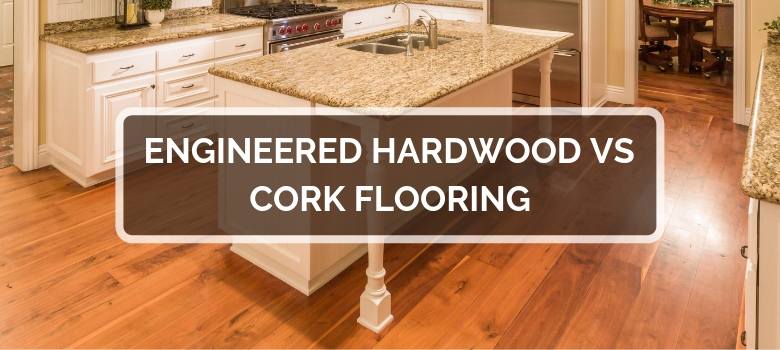Pros of Kitchen Cork Flooring
Durability: One of the significant advantages of kitchen cork flooring is its durability. Cork flooring is known for its ability to withstand heavy foot traffic and resist wear and tear. It is a resilient material that can last many years without showing deterioration.
Comfortable and Soft: Cork flooring is naturally soft and provides a comfortable surface. This is particularly beneficial in a kitchen where you spend a significant amount of time standing and working. The cushioning effect of cork can help to reduce fatigue and strain on your feet and legs, making it a suitable choice for those who spend long hours cooking or baking.
Thermal Insulation: Another advantage of cork flooring is its excellent thermal insulation properties. It acts as a natural insulator, keeping your kitchen warm in the winter and cool in the summer. This can help to reduce energy consumption and lower your heating and cooling bills.
Noise Reduction: Cork flooring is known for its sound-absorbing qualities. It can help to reduce noise levels in your kitchen, making it a quieter and more peaceful environment. This can be especially beneficial in open-plan kitchens or homes with multiple levels, where noise can easily travel between rooms.
Eco-Friendly: Cork flooring is a sustainable and environmentally friendly choice for your kitchen. It is made from the bark of the cork oak tree, which regenerates and can be harvested without causing harm to the tree. Additionally, the production process of cork flooring involves minimal energy consumption and does not release harmful chemicals or pollutants.
Easy Maintenance: Cork flooring is relatively easy to maintain. It is resistant to stains, mold, and mildew, making it a hygienic option for kitchen floors. Regular sweeping and occasional mopping with a mild detergent is usually sufficient to keep the surface clean and in good condition.
Versatility in Design: Cork flooring comes in a wide range of colors, patterns, and textures, allowing you to choose a design that complements your kitchen decor. It can mimic the appearance of other flooring materials such as hardwood or tile, giving you the flexibility to achieve the desired aesthetic without the associated drawbacks.

Cons of Kitchen Cork Flooring
- Susceptible to moisture damage: One of the major drawbacks of kitchen cork flooring is its susceptibility to moisture damage. Cork is a porous material, and if not properly sealed, it can absorb moisture and lead to warping or swelling. This makes it less suitable for areas prone to spills or high humidity levels, such as kitchens.
- Prone to scratches and dents: While cork flooring is known for its resilience, it is not completely immune to scratches and dents. Heavy furniture, sharp objects, or pet claws can leave visible marks on the surface of the floor. Regular maintenance and protective measures, such as using furniture pads and avoiding dragging heavy items, are necessary to minimize the risk of damage.
- Fading in sunlight: Exposure to direct sunlight can cause cork flooring to fade over time. This can be a concern in kitchen areas where large windows or skylights allow excessive sunlight to enter. To prevent fading, it is recommended to use curtains, blinds, or UV-blocking window films to limit the amount of sunlight reaching the floor.
- Limited design options: While cork flooring offers a unique and natural look, it may not provide as many design options compared to other types of flooring. The range of colors, patterns, and finishes available for cork flooring is relatively limited. This can restrict homeowners who prefer a wider variety of styles and aesthetics in their kitchen flooring.
- Expensive initial cost: Cork flooring tends to be more expensive than other flooring options, especially when considering the cost of professional installation. Although it offers long-term durability and insulation benefits, the higher initial cost can be a drawback for budget-conscious homeowners.
- Requires regular maintenance: Cork flooring requires regular maintenance to keep it in good condition. This includes routine cleaning, resealing, and avoiding prolonged exposure to moisture. Failure to properly maintain cork flooring can lead to accelerated wear and tear, reducing its lifespan and overall appearance.
- Limited resistance to chemicals: Cork flooring is not highly resistant to chemicals, which can be problematic in a kitchen environment where spills of cleaning agents or acidic substances are common. Immediate cleaning and prompt removal of any spills are necessary to prevent staining or damage to the floor’s surface.

Is Cork Flooring the Right Choice for Your Kitchen?
Cork flooring has become a popular choice for many homeowners due to its unique qualities and benefits. However, when it comes to selecting the right flooring for your kitchen, it is important to consider both the pros and cons of cork flooring to make an informed decision.
Pros of Cork Flooring in the Kitchen:
Comfortable and Soft: Cork flooring is known for its cushioning effect, making it a comfortable choice for standing on for long periods. This can be especially beneficial in a kitchen where you may spend a significant amount of time cooking or cleaning.
Durability: Despite its soft and cushiony nature, cork flooring is surprisingly durable. It can withstand heavy foot traffic, resist dents and scratches, and is less likely to be damaged by dropped items compared to other types of flooring.
Water Resistance: Cork flooring is naturally resistant to water, making it a suitable choice for kitchens where spills and moisture are common. However, it is important to note that while cork is resistant to water, it is not waterproof. Promptly cleaning up spills and avoiding standing water is essential to maintain its longevity.
Eco-Friendly: Cork flooring is made from the bark of cork oak trees, which can be harvested without causing harm to the tree. This makes it a sustainable and environmentally friendly option for homeowners who prioritize eco-conscious choices.
Cons of Cork Flooring in the Kitchen:
Susceptible to Damage: While cork flooring is durable, it is not completely impervious to damage. Heavy furniture or appliances can leave indentations, and sharp objects can cause scratches. Additionally, high heels or pet claws can leave marks on the surface. Regular maintenance and preventative measures can help mitigate these risks.
Limited Design Options: Compared to other flooring materials, cork flooring may have a more limited range of design options. However, manufacturers have made strides in expanding the variety of colors and patterns available, making it easier to find a style that suits your kitchen aesthetic.
Fading and Discoloration: Over time, cork flooring may experience some fading or discoloration due to exposure to sunlight. To minimize this effect, it is recommended to use window coverings or rugs to protect the flooring from direct sunlight.
Initial Cost: Cork flooring can be more expensive upfront compared to some other flooring options. However, considering its durability and longevity, it can be a worthwhile investment in the long run.

Bamboo vs Cork Flooring 2023 Comparison, Durability, Pros & Cons

Cork Flooring: Pros, Cons and Alternatives – Home Stratosphere

Engineered Hardwood vs Cork Flooring 2022 Comparison, Pros u0026 Cons

Cork flooring reviews – pros and cons, manufacturers and more

Related articles: